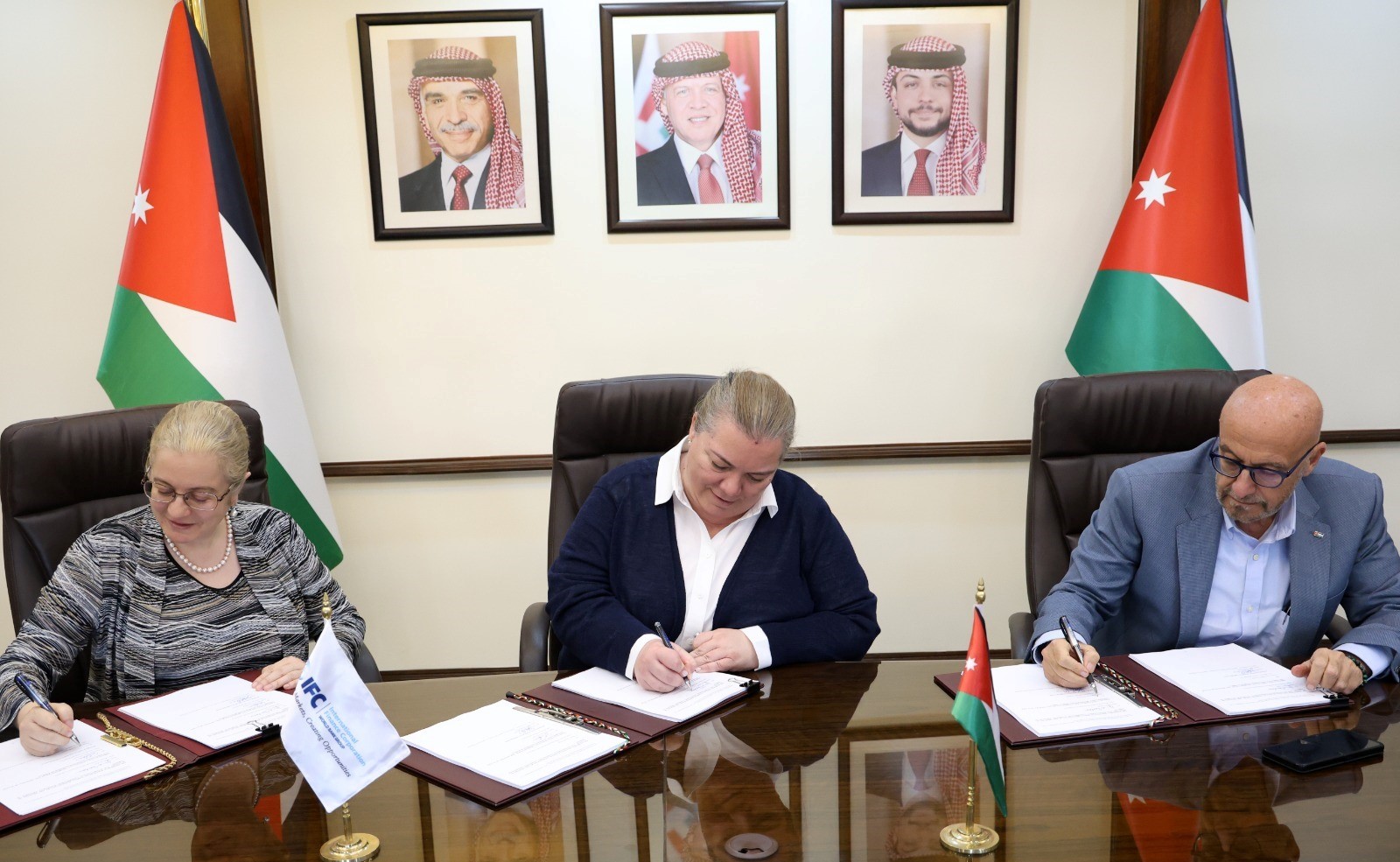
Amman, Jordan, June 6, 2024—IFC, a member of the World Bank Group, the Government of Jordan and Amman's water company, Miyahuna, today signed a collaboration agreement to support the company as it aims to reduce water loss across its distribution network, increasing water supply, and enhancing sustainability and climate resilience.
Limited water deliveries in some cities drive residents to use costly tankers, especially in summer, while a large amount of the water supplied to Amman is lost mostly due to old pipelines. This lost water does not generate revenue for the water company and is referred to as Non-Revenue Water (NRW). IFC will work with the Government of Jordan and Miyahuna, a state-owned water utility, to reduce the country's high NRW rate.
"This new partnership with IFC will help us increase water supply for everyone and improve the efficiency of the network by engaging the private sector – a basic human need," says Zeina Toukan, Minister of Planning and International Cooperation.
IFC will work with both entities to co-develop a project that can attract private sector investments in the NRW space. The project will be then tendered competitively to optimize water-management efficiency and reduce water loss substantially across one third of Amman's area.
Jordan struggles as one of the world's most water-scarce countries. Increasing temperatures due to climate change further reduce water availability for each person, making every drop matter to the country.
"The agreement demonstrates our commitment to addressing the long-standing issue of water scarcity that can impact every aspect of life. Reducing water loss will not only help us save water for more people but will also support our revenues to provide better services in the long run," says Mohammad Ouran, CEO of Miyahuna.
Miyahuna currently supplies potable water to over 6 million residents of the Greater Amman region and the neighboring Zarqa, Madaba, and Balqa governorates, where half of Jordan's population resides. Population growth and influx of refugees took a toll on Jordan's water system.
"Cutting water loss by half can supply water for about half a million people in Jordan," Hela Cheikhrouhou, IFC Regional Vice President for the Middle East, Central Asia, Türkiye, Afghanistan, and Pakistan. "IFC aims to work in tandem with the government to engage the private sector as part of the solution for not only saving water but also for increasing Jordan's overall resilience to climate change."
This long-term project is aligned with the World Bank Group's strategy and with the government's target to reduce water loss by 2 percent a year. IFC has been working with the government on defining opportunities for solutions financed by the private sector.
About IFC
IFC — a member of the World Bank Group — is the largest global development institution focused on the private sector in emerging markets. We work in more than 100 countries, using our capital, expertise, and influence to create markets and opportunities in developing countries. In fiscal year 2023, IFC committed a record $43.7 billion to private companies and financial institutions in developing countries, leveraging the power of the private sector to end extreme poverty and boost shared prosperity as economies grapple with the impacts of global compounding crises. For more information, visit www.ifc.org.
Stay connected with IFC on social media
About Miyahuna
Established in 2007 as an LLC under the Company Law of Jordan, Miyahouna is the main water utility in Jordan, supplying potable water to 98% of the 6 million residents of Greater Amman including the neighboring Zarqa, Madaba and Balqa governorates, out of a total population of 10 million. Miyahuna is 100% publicly owned by the Water Authority of Jordan ("WAJ"). WAJ is responsible for water supply and wastewater services and is governed by the Ministry of Water and Irrigation ("MWI"). For more information, visit www.miyahouna.com.jo
Contacts
Stay Informed
Sign up to have customizable news & updates sent to you.